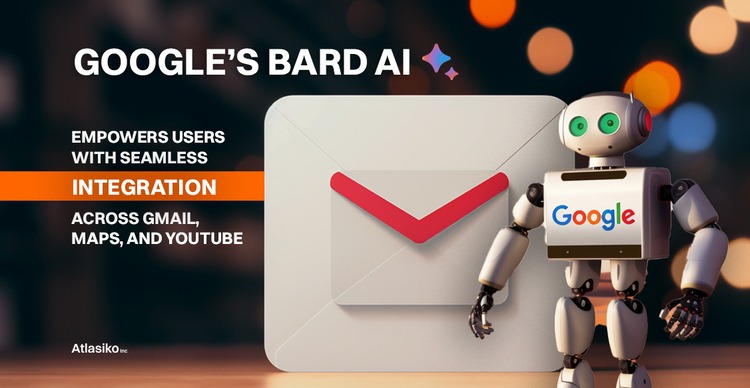Google's AI Ambitions: Gemini Integration with Maps and YouTube
Google plans to integrate its Gemini AI with Maps and YouTube, enhancing user experiences with advanced AI capabilities across popular platforms.

Google’s AI Ambitions: Gemini Integration with Maps and YouTube
Google is actively pursuing the right to bundle its upcoming Gemini AI app with flagship services such as Google Maps and YouTube, according to recent reports from Bloomberg. This move underscores Google's strategic effort to embed advanced AI capabilities deeply within its core ecosystem, enhancing user experiences across its most popular platforms.
What Is Gemini AI and Why It Matters
Gemini is Google’s next-generation AI model designed to deliver superior natural language understanding and interactive capabilities. It represents a significant leap forward from the existing Google Assistant, promising more nuanced voice interactions, contextual understanding, and multimodal AI functions. Google has already begun rolling out Gemini integration within smart home devices through the revamped Google Home app, offering early access to select U.S. users.
Gemini’s AI powers new features such as:
- Summarizing camera video history and home activity in the Google Home app,
- Processing complex voice queries with greater accuracy,
- Enabling natural language control over multiple smart home devices simultaneously,
- Generating contextual summaries for notifications and alerts.
Replacing the traditional Google Assistant with Gemini on smart devices signals Google’s commitment to AI-driven user interfaces.
The Bundling Strategy: Integrating Gemini With Maps and YouTube
Google’s request to bundle Gemini with Maps and YouTube reflects the company’s plan to transform these platforms into AI-enhanced experiences. By integrating Gemini’s conversational AI within Maps, users could benefit from more intuitive navigation assistance, real-time contextual suggestions, and personalized travel insights. Similarly, embedding Gemini in YouTube could lead to smarter content discovery, voice-controlled video interactions, and AI-curated recommendations.
Bundling Gemini with these widely used apps would:
- Drive mass adoption of Gemini AI by leveraging Google’s massive user base,
- Provide seamless, AI-powered assistance across multiple daily digital touchpoints,
- Strengthen Google’s competitive edge against rivals like Microsoft’s AI-powered Bing and OpenAI’s ChatGPT integrations.
Industry Context and Competitive Pressure
The bundling request comes amid a broader AI arms race, with tech giants aggressively embedding AI across their ecosystems. Microsoft has integrated OpenAI’s GPT models into Bing and Microsoft 365 apps, while Meta, Amazon, and Apple pursue their own AI strategies.
Google’s Gemini aims to differentiate itself through multimodal capabilities—combining text, images, and voice—and deep integration across Google’s services. Bloomberg’s report highlights that Google is seeking regulatory clearance to bundle Gemini, which may face scrutiny over antitrust and competition concerns due to the potential market leverage this integration would create.
Current Rollout and Future Plans
Google began inviting users to try Gemini on smart home devices in early October 2025, initially limited to the U.S. market. Supported devices include Google Home, Nest Hub, Nest Audio, and Nest Wifi products, where Gemini replaces Google Assistant as the default voice AI. The company plans to expand Gemini-powered experiences globally in early 2026.
Alongside smart home integration, Google is updating the Google Home app with Gemini AI features such as:
- AI-generated home activity summaries,
- Enhanced natural language search and device control,
- Rich, animated event notifications with contextual insights.
This phased rollout reflects Google’s careful approach to scaling Gemini across devices and services.
Implications for Users and the Tech Landscape
If Google succeeds in bundling Gemini with Maps and YouTube, it could redefine how users interact with these apps by transforming them from traditional tools into AI-powered assistants capable of understanding complex commands and delivering personalized, context-aware responses. This would mark a substantial evolution in AI application, moving beyond isolated chatbots toward deeply embedded, multimodal AI ecosystems.
However, the bundling raises potential regulatory questions, as combining cutting-edge AI with dominant platforms might reinforce Google’s market dominance, attracting antitrust scrutiny in the US and Europe.
Visuals to Accompany the News
- Official Google Gemini branding and logos,
- Screenshots of the Google Home app showing Gemini AI features,
- Interface images from Google Maps and YouTube with AI enhancements,
- Photos of key Google smart home devices supporting Gemini.
Google’s push to bundle Gemini AI with its major apps marks a pivotal moment in the AI integration race, promising more intelligent, intuitive experiences across everyday platforms while navigating regulatory challenges ahead. The coming months will show how this strategy reshapes user interaction paradigms and competitive dynamics in the tech industry.



